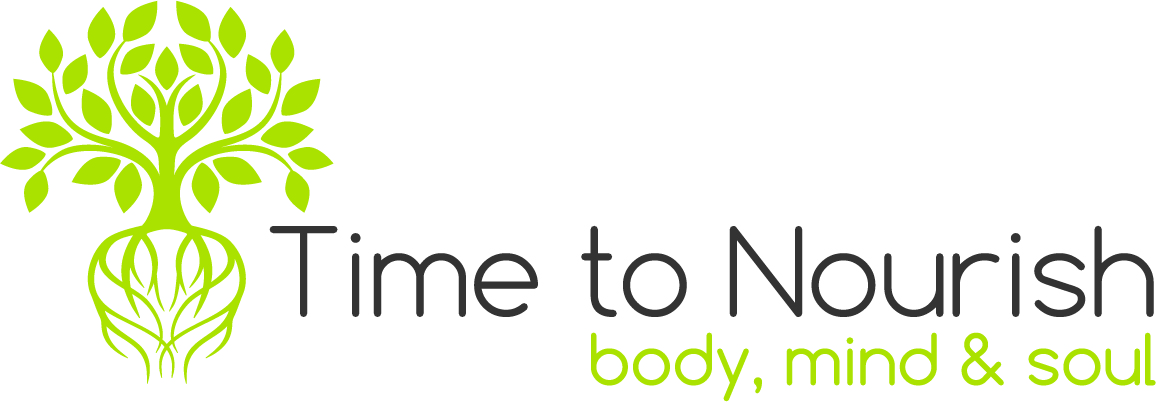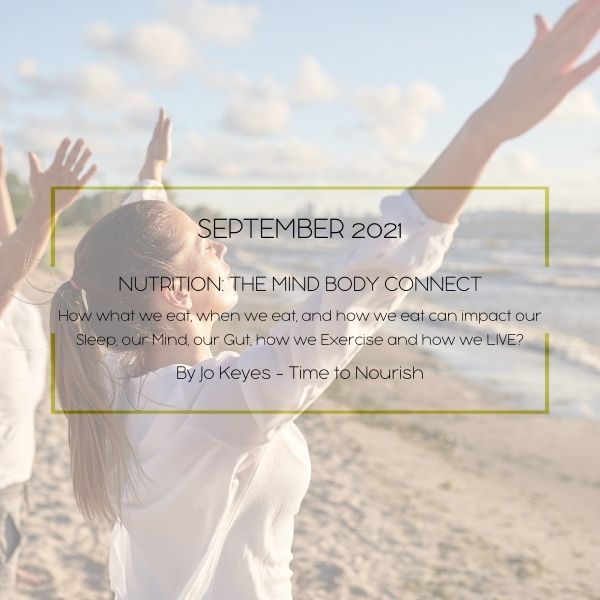Nutrition: The Mind-Body Connection
How what we eat, when we eat and how we eat can impact our Sleep, our Mind, our Gut, how we Exercise and how we LIVE?
Food is fuel, right?
It gives us energy to go about our daily tasks and exercise to keep us fit.
Yes, this is absolutely true, but it is so much more than that! Research into nutritional science is forever developing our knowledge of how our bodies and the complex, interconnected systems and chemical pathways truly work! And how we feed our bodies is paramount to underpin our health. I find it fascinating.
At a basic level we know we should eat well and exercise to maintain a healthy weight and keep our bodies physically fit to reduce the risk of becoming sick. We know we need sufficient sleep and to manage our stress levels and may have even considered our gut health in our mission to optimise our health.
However, have you ever thought about the bigger picture? How all of these elements impact each other and have a knock-on effect.
Sleep, Exercise & Mood
If we don’t sleep well we feel tired and drained and this will affect our energy levels and cognitive function and lead to mental fatigue. It will also affect our mood, not to mention our motivation to exercise and the food choices we make.
A review of the effects of mental fatigue on physical performance showed that they are intrinsically linked. Many studies indicate that mental fatigue, a psychological and biological state caused by engaging in a cognitively demanding task for an extended period of time, can impact physical performance. Interestingly, studies on mental fatigue have not shown a decrease in physical capabilities, but rather an increase in perceived effort. In other words, after a demanding cognitive task, a physical activity seems harder to perform. (Cutsem, 2017)
Studies have shown that insufficient sleep can also affect our mood including increased anxiety and stress levels, but exercise has been shown to elevate our mood and reduce anxiety and stress levels partly due to the endorphins released during and after physical exercise.
If we fuel our bodies in the right way we can exercise more effectively and sleep better and, when including the right nutrients, help support recovery and repair of muscles, so we are able to exercise more regularly.
Physical exercise is also a precursor to a good night’s sleep. When we sleep our bodies rest, recover and repair from the day physically and mentally through the glymphatic system, a recently discovered macroscopic waste cleaning system in the brain activated during deep sleep.
Mind, the mental health organisation, highlights the vicious cycle of sleep, mood and mental health.
There’s a close relationship between sleep and mental health. Living with a mental health problem can affect how well you sleep, and poor sleep can have a negative impact on your mental health. (Mind, 2020)

Sleep, Exercise, Mood, Food and the Gut
Now let’s consider the role of our gut which is not just for digesting our food for energy and producing the waste. It is an important organ in constant communication with the brain through the gut brain axis and is often referred to as ‘the second brain,’ helping to regulate vital processes.
The trillions of bacteria which live in our gut, mostly in the large intestine – our microbiome, are crucial to our health. What we eat has a big impact on the diversity and balance of bacteria in our gut as does our environment and lifestyle including exercise, sleep and mood and vice versa; our microbiome can influence our sleep, mood, metabolism, hormone balance, inflammation and immunity, among many other things.
Our gut bacteria have a circadian rhythm too, when this is out of sync, when our sleep is disrupted, this can affect the production of the hormones leptin and ghrelin which control our appetite, leading to cravings and possible weight gain.
The connections go on and on – too many to mention here. It is like a domino effect.
Conclusion
It’s not really a conclusion but more of a round up! As this subject is a bit chicken and egg!
The mind and the body are not two separate entities, our physical health and emotional health are intimately linked. Our chemistry and biology impact our mood and emotions, as well as thoughts and beliefs. With all of these factors combined, they play a major role in influencing our stress and physical health.
What we eat, when we eat and how we eat can impact each and every one of these elements. To learn more and taste some delicious new recipes, join us for our New Workshop Series Nutrition: The Mind-Body Connection. The 5 workshops include:
Eat for Sleep
Eat for Exercise
Eat for your Mind
Eating for your Gut
Eat for your Life!
For more information head to my website – Workshops – Time to Nourish
References
Cutsem, J. V. (2017, August). The Effect of Mental Fatigue on Physical Performance. Retrieved from Pubmed: https://pubmed.ncbi.nlm.nih.gov/28044281/
Mind. (2020). How to cope with sleep problems. Retrieved from Mind : https://www.mind.org.uk/information-support/types-of-mental-health-problems/sleep-problems/about-sleep-and-mental-health/



